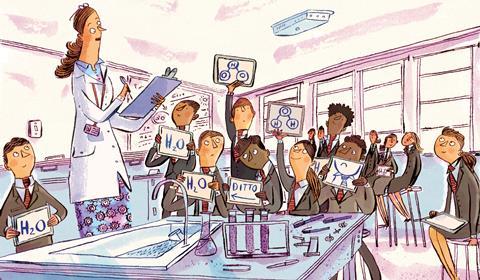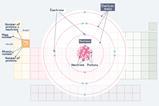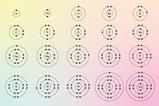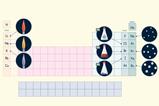Niki Kaiser shares ideas to help you create a calm, happy classroom environment – where every student feels known

I’ve always been a little envious of those quick-witted teachers who can hold the attention of the class with jokes, quips and puns, inducing waves of giggles and smiles. I’ve never been a jokey, clown-about teacher, so I have to find other ways to grasp, and hold, the attention of the pupils I teach.

I do make a real effort to get to know my students, and find out what makes them tick. At the start of the year I have a completely different relationship with any class I teach to the end of the year. By the summer term, you might see me raise my eyebrow at a passing comment from a pupil, as we exchange knowing looks, or hear me quietly giving one or two words of encouragement about a seemingly small thing I know is important to them.
Establish routines, make your boundaries clear and stick to these unswervingly
Knowing and understanding our pupils and their influences is a key recommendation from the Education Endowment Foundation’s 2019 Improving behaviour in schools guidance report. This doesn’t (necessarily) mean having long conversations about the state of their favourite football team or chatting to them about the music they’re listening to. It also doesn’t mean being their friend. It does mean anticipating how pupils might respond to certain situations, and using what we know about them to make this as positive as possible.
Focus on what you can control
We only have direct influence over a limited range of things that influence pupils’ behaviour, so this is what we should focus on. We can’t control whether they argue with someone at home before they leave the house, for example. But we can create an environment where they are less fixated on what happened, and more focused on school. So, establish routines, make your boundaries clear and stick to these unswervingly.

If you notice that a pupil isn’t themselves, you can relate to them accordingly. A quiet ‘you OK?’, as you pass them can be enough to let them know you’ve noticed them, and stave off any attempts to draw your attention to them later. Similarly, if you notice a student looking agitated when they enter the classroom, you might find an early opportunity to ‘catch them being good’. This is more effective if your classroom is generally calm and organised.
This isn’t to say that all issues can be solved simply, and it’s important to pass on any specific safeguarding concerns. But teaching, at its best, has relationships at its heart. Knowing our pupils is fundamental to this.
Don’t go it alone
Having said that, many aspects of the EEF recommendation are beyond the direct control of the class teacher. Even the best teachers will struggle if not backed by a supportive leadership team. One of the protective factors for student mental health highlighted in the report is ‘to ensure staff are confident to raise concerns about policies and processes, and know they will be dealt with fairly and effectively’.
But there are still some useful pointers in the report, beyond the headline, that can be used to inform individual teachers. The Establish-Maintain-Restore method, which would need to be implemented as a whole-school approach, encompasses principles that are applicable for all: intentionally building relationships with pupils, being proactive in maintaining these, and finding ways to restore relationships when they break down. This should be a key part of your planning for each lesson.
If nothing else, knowing your pupils will make teaching more enjoyable

If you teach teenagers, it will come as no surprise to read that adolescents are strongly influenced by peers and social pressure. This might lead to more risk-taking behaviour, but it might also lead to risk aversion, such as reluctance to answer questions in class. This self-consciousness is something we can consider as we work to build pupils’ confidence and willingness to try. Switching to mini whiteboards to elicit answers to a question can be a simple way to find out what every pupil is thinking, without having to put anyone on the spot.
Of course, no teacher works in isolation, and any approach will be most effective if used consistently throughout the school. But, if nothing else, knowing your pupils will make teaching more enjoyable. Teaching is all about the relationships you build. Find out more about your pupils; it’ll be rewarding (for them, and for you).
Need some more behaviour management tips?
Then you need to read Kristy Turner’s humorous take on managing behaviour in the chemistry lab. Or read Andy Chandler-Grevatt’s take on the tricky topic of how to teach good behaviour in the chemistry lab.

Behaviour management in the chemistry classroom

Overcome the challenges of misbehaviour in your lab with these targeted tips and strategies
- 1
- 2
 Currently
reading
Currently
reading
How knowing your pupils improves outcomes
- 4
- 5
- 6
- 7
- 8




























No comments yet